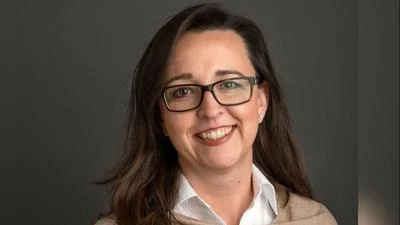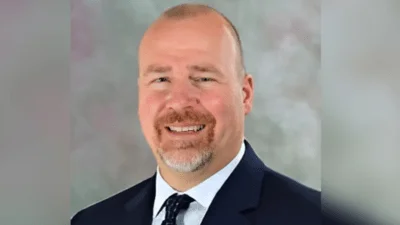Sen. Tammy Baldwin | Tammy Baldwin Official Website
Sen. Tammy Baldwin | Tammy Baldwin Official Website
Legislation would support training for health care providers in abortion care, including those forced to travel out-of-state due to abortion restrictions
WASHINGTON, D.C. – Today, Senators Tammy Baldwin (D-WI) and Patty Murray (D-WA) introduced the Reproductive Health Care Training Act of 2023, legislation to ensure that health care professionals can get the training and education they need to meet Americans’ dire reproductive health care needs. Since Roe v. Wade was overturned and one in three women have had their reproductive freedom stripped away, reproductive medical education and abortion training has been upended.
“When Roe v. Wade was overturned, women in Wisconsin were sent back to 1849, living under a criminal abortion ban. But the impact didn’t stop there. Doctors have been barred from providing the care they have been trained to perform and medical students and faculty are being forced to travel out of state for training. In order for women to exercise their right and freedom to control their bodies, doctors need the proper reproductive health care training,” said Senator Baldwin. “The Reproductive Health Care Training Act will bolster the pipeline of these needed doctors by easing the burden that out-of-state training presents and supporting the medical programs that are seeing an influx of individuals that need training.”
“The nonstop Republican attacks on reproductive health care are having a chilling effect not only on patients seeking care, but also on the doctors and nurses who provide it,” said Senator Murray. “We need to make sure that health professionals in every state can receive critical training in reproductive health care—even if they have to travel to other states to get it. This legislation will establish a much-needed grant program for schools and health centers in states like Washington, where abortion is legal, to expand clinical training for abortion care in a post-Roe world.”
Following the Dobbs decision last year, at least fourteen states are living under near total abortion bans, while others have severely restricted access. In the wake of this decision, medical education institutions face additional obstacles in maintaining their accreditation and ensuring that residents and students receive proper training in abortion care. Residency programs in obstetrics and gynecology are required to provide access to training in abortion care in order to maintain their accreditation.
Educational institutions in states with abortion bans—like Wisconsin—have been forced to send students out of state to receive training, as institutions in states where abortion is legal—like Washington—deal with an influx of health care professionals in need of training in abortion care.
The Reproductive Health Care Training Act would establish a program, funded at $25 million each year for the next five years, to award grants or contracts to eligible medical programs to expand and support education for students, residents, and advanced practice clinicians in states that allow comprehensive training in abortion care. Funding can be used to support both medical programs with students traveling out of state and programs in states accommodating an influx of students. The Reproductive Health Care Training Act will help meet the current need for more women’s health care providers nationwide, especially in states that have abortion restrictions.
Grants would be available to accredited health professions schools, academic health centers, and other safety-net providers in all states to offset the additional costs associated with training providers in a post-Roe world. The bill would allow funds to be used for clinical training and development of educational programs in abortion care, instructor and faculty development, stipends to support access to training, and improving care in medically underserved areas, among other uses.
Senators Baldwin and Murray’s legislation is co-sponsored by Senators Deb Stabenow (D-MI), Catherine Cortez-Masto (D-NM), Elizabeth Warren (D-MA), and Kyrsten Sinema (I-AZ). Companion legislation was also introduced in the U.S. House by Representative Ami Bera, M.D. (D-CA-06).
“The Dobbs decision has had a devastating impact on reproductive health care,” said Representative Ami Bera, M.D., former Chief Medical Officer for Sacramento County. “Instead of being able to provide the highest quality medical care to their patients, physicians are being forced to flee from states that have restrictive abortion bans. This not only results in health care gaps in those regions, but also places an undue burden on states that protect abortion rights. The Reproductive Health Care Training Act is a crucial step towards addressing the medical education voids caused by restrictive abortion laws. By establishing a program that supports and expands education in abortion care, regardless of where students and providers reside, we can empower the next generation of health care professionals to fulfill their duty to serve their patients and uphold reproductive rights.”
The Reproductive Health Care Training Act is supported by Physicians for Reproductive Health, the American College of Obstetricians and Gynecologists, UW-Health, the National Family Planning & Reproductive Health Association, Power to Decide, and Planned Parenthood.
“Physicians for Reproductive Health is proud to support the Reproductive Health Care Training Act of 2023. Comprehensive training in sexual and reproductive health care, including abortion care, for physicians and advanced practice clinicians providing reproductive health care is essential,” said Dr. Jamila Perritt, President & CEO of Physicians for Reproductive Health. “As states continue to ban and heavily restrict abortion access we are deeply concerned that future providers will not have the skills necessary to provide patients the care they need. We are grateful to see our champions take on this timely and important issue.”
“Abortion is essential health care, and, like access to abortion care itself, access to comprehensive education and training in abortion care is vitally important. The American College of Obstetricians and Gynecologists (ACOG) strongly supports the introduction of the Reproductive Health Care Training Act of 2023, which will allow medical schools, residency programs, and other institutions to support and expand critical abortion care training for students, residents, physicians in practice, and advanced practice clinicians,” said AnnaMarie Connolly, MD, FACOG, Chief of Education and Academic Affairs at American College of Obstetricians and Gynecologists. “This legislation will allow future generations of physicians and practitioners to meet patient needs, providing a much-needed increase in access to care—especially in areas where the need for clinical care may increase tremendously as more patients present from out of state in search of such care.”
“I commend Senator Baldwin for her commitment to our country’s health care workforce and the patients we serve,” said Dr Ellen Hartenbach, Chair of the Department of Obstetrics and Gynecology at the University of Wisconsin School of Medicine and Public Health. “UW Health cannot train new OB/GYNs without providing them the tools to address all health issues. Resident physicians training in OB/GYN in Wisconsin, and all states where abortion has been curtailed or outlawed, would benefit from resources to ensure training in abortion care – and so would their patients.”
More information on the Reproductive Health Care Training Act is available here. Full text of the legislation is available here.
Original source can be found here.






 Alerts Sign-up
Alerts Sign-up